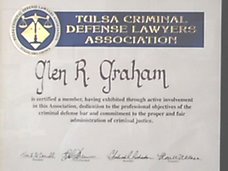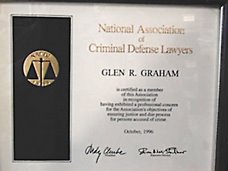http://confrontationright.blogspot.com/
In State v. March, 2007 WL 828156, the Missouri Supreme Court joinedother jurisdictions in holding that a lab report prepared for use inprosecution is testimonial. I believe this result is clearly correct, and appropriately the court did not appear to endure much angst in reaching it. The decision sharpens the conflict among thestates. The Supreme Court will have to resolve this matter.
Oregon Supreme Court holds admission of lab report violates right to confrontation
The Oregon Supreme Court decided (4-27-07) State v. Birchfield, holding that the trial court violated the accused's right underArticle I, sec. 11 of the state Constitution "to meet the witnessesface to face" when it introduced a lab report without presenting the testimony of the criminalist who prepared it or demonstrating his unavailability. The court also holds that a process giving heaccused the right to subpoena the witness is no substitute for theconstitutional right. The court does not reach contentions under the federal Constitution. Very nice result, crisply reached, immune fromfederal review, doesn't help set up a conflict for certiorari purposes. The decision leaves open the possibility that the court would saythat if the criminalist is available the report can come in even absent an opportunity for confrontation. But clearly that issue isnot reached in this decision.
CONFRONTATION AND THE PRELIMINARY HEARING (aka Excluding Lab Reportsfrom Preliminary Hearings without a Sponsoring Witness in Violationof Crawford v. Washington)by D. MICHAEL HAGGERTY, II
See:http://www.okbar.org/members/sections/criminal/news12.pdf
I. INTRODUCTIONThe right of confrontation was recently thrust back onto centerstageby the groundbreaking U.S. Supreme Court decision in Crawford v.Washington, 541 U.S. 36 (2004). In rejecting the standard foradmissibility of hearsay, at least for "testimonial" hearsay, whichit had created in Ohio v. Roberts, 448 U.S. 56 (1980), the Courtopened up questions regarding the admissibility of evidence whichhad been settled for nearly 25 years.
Admission of Lab Reports in Violation of 6th Am - New Cases
Subscribe to:
Post Comments (Atom)






No comments:
Post a Comment